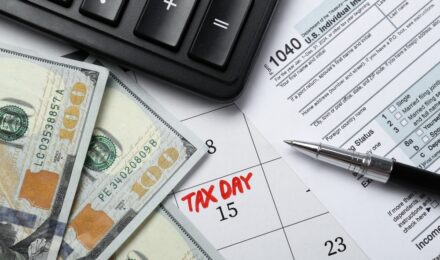When people think of taxes, they often think of April 15th, known as Tax Day, the deadline for filing federal income tax returns. However, this deadline is not absolute. The Internal Revenue Service (IRS) grants an automatic extension to file, but it’s important to note that this extension is only for filing, not for paying taxes.
This article delves deeper into income tax laws and returns, as well as various other types of taxes. Some taxes are variable, meaning the amount paid depends on several factors. Others are fixed, such as sales tax, which is a set percentage of the purchase price and non-negotiable.
Taxes can be allocated to federal or state treasuries and used according to the approved budget. Some taxes, like those on airline tickets, are designated for specific purposes. This article will explain these aspects in greater detail.
LEGALITY
The ability to impose any tax is based on provisions in the constitutions of the United States and individual states. When the country was founded in 1789, there was no provision for personal income tax, and the government relied on other income sources.
Historically, Congress passed income tax laws that were later repealed or found unconstitutional. This led to the approval and ratification of the 16th Amendment on February 13, 1913, giving the federal government the power to impose an income tax. The specifics of the tax, including rates and amounts, are determined by Congress and are subject to frequent changes, so it’s important to stay informed about new laws.
FEDERAL INCOME TAX
Before electronic filing became widespread, April 15th often saw long lines at local post offices, which sometimes stayed open until midnight to hand-stamp returns as proof of timely filing. While some people still file paper returns, these usually involve complex calculations requiring tax experts’ assistance. Automatic extensions are available, but taxes must still be paid in full by April 15th.
For individuals or businesses unable to pay in full, filing on time is still essential. The IRS offers provisions to negotiate payment plans within certain limits and is generally willing to work with those serious about paying their back taxes.
STATE INCOME TAX
If you live in a state with an income tax, you might be surprised to learn that nine states—Alaska, Florida, Nevada, New Hampshire, South Dakota, Tennessee, Texas, Washington, and Wyoming—do not have a personal income tax. These states rely on other revenue sources, such as higher sales, property, or gasoline taxes, deeming these forms of taxation more reliable.
LOCAL INCOME TAX
Local income taxes can be imposed by cities or counties and vary widely. They tax residents’ income, sometimes with different criteria than federal taxable income. This means an individual’s taxable income may differ on the local level.
PROPERTY TAX
County governments often rely on property taxes, levied on the appraised value of real estate. The appraisal process, typically conducted periodically, can be contentious. While there is usually an appeal process for valuations, disagreements about property value are common. When purchasing real estate, it’s wise to check the next valuation date to avoid surprises.
GASOLINE TAX
The gasoline tax is unique in that it’s a fixed amount included in the purchase price, unlike sales tax, which is added based on the item’s price. The listed price per gallon of gas includes federal and state taxes, which fund highway improvements. This tax remains constant despite fluctuations in gasoline prices.
SALES TAX
Sales tax is a fixed percentage added to the purchase price, with portions going to state and local governments. Sometimes, specific taxes are imposed for particular projects.
AIRLINE TICKET TAX
A fixed tax is also imposed on airline tickets, designated for airport improvements. Frequent flyers pay more, which aligns with the benefit they receive from enhanced airport facilities.
OTHER TAXES
There are many other taxes, such as excise taxes on items like cigarettes and alcohol, often raised to discourage usage by increasing prices.
This article has only touched the surface of taxation. Taxes are integral to the economic framework of countries, states, and local governments. Being aware of each tax and its purpose is crucial, particularly in distinguishing between variable and fixed taxes.
When people think of taxes, they often think of April 15th, known as Tax Day, the deadline for filing federal income tax returns. However, this deadline is not absolute. The Internal Revenue Service (IRS) grants an automatic extension to file, but it’s important to note that this extension is only for filing, not for paying taxes.
This article delves deeper into income tax laws and returns, as well as various other types of taxes. Some taxes are variable, meaning the amount paid depends on several factors. Others are fixed, such as sales tax, which is a set percentage of the purchase price and non-negotiable.
Taxes can be allocated to federal or state treasuries and used according to the approved budget. Some taxes, like those on airline tickets, are designated for specific purposes. This article will explain these aspects in greater detail.
LEGALITY
The ability to impose any tax is based on provisions in the constitutions of the United States and individual states. When the country was founded in 1789, there was no provision for personal income tax, and the government relied on other income sources.
Historically, Congress passed income tax laws that were later repealed or found unconstitutional. This led to the approval and ratification of the 16th Amendment on February 13, 1913, giving the federal government the power to impose an income tax. The specifics of the tax, including rates and amounts, are determined by Congress and are subject to frequent changes, so it’s important to stay informed about new laws.
FEDERAL INCOME TAX
Before electronic filing became widespread, April 15th often saw long lines at local post offices, which sometimes stayed open until midnight to hand-stamp returns as proof of timely filing. While some people still file paper returns, these usually involve complex calculations requiring tax experts’ assistance. Automatic extensions are available, but taxes must still be paid in full by April 15th.
For individuals or businesses unable to pay in full, filing on time is still essential. The IRS offers provisions to negotiate payment plans within certain limits and is generally willing to work with those serious about paying their back taxes.
STATE INCOME TAX
If you live in a state with an income tax, you might be surprised to learn that nine states—Alaska, Florida, Nevada, New Hampshire, South Dakota, Tennessee, Texas, Washington, and Wyoming—do not have a personal income tax. These states rely on other revenue sources, such as higher sales, property, or gasoline taxes, deeming these forms of taxation more reliable.
LOCAL INCOME TAX
Local income taxes can be imposed by cities or counties and vary widely. They tax residents’ income, sometimes with different criteria than federal taxable income. This means an individual’s taxable income may differ on the local level.
PROPERTY TAX
County governments often rely on property taxes, levied on the appraised value of real estate. The appraisal process, typically conducted periodically, can be contentious. While there is usually an appeal process for valuations, disagreements about property value are common. When purchasing real estate, it’s wise to check the next valuation date to avoid surprises.
GASOLINE TAX
The gasoline tax is unique in that it’s a fixed amount included in the purchase price, unlike sales tax, which is added based on the item’s price. The listed price per gallon of gas includes federal and state taxes, which fund highway improvements. This tax remains constant despite fluctuations in gasoline prices.
SALES TAX
Sales tax is a fixed percentage added to the purchase price, with portions going to state and local governments. Sometimes, specific taxes are imposed for particular projects.
AIRLINE TICKET TAX
A fixed tax is also imposed on airline tickets, designated for airport improvements. Frequent flyers pay more, which aligns with the benefit they receive from enhanced airport facilities.
OTHER TAXES
There are many other taxes, such as excise taxes on items like cigarettes and alcohol, often raised to discourage usage by increasing prices.
This article has only touched the surface of taxation. Taxes are integral to the economic framework of countries, states, and local governments. Being aware of each tax and its purpose is crucial, particularly in distinguishing between variable and fixed taxes.



